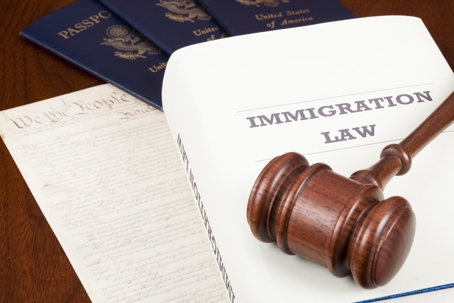Immigration law in the U.S. is shifting quickly. Below are three of the most consequential changes affecting naturalization, work visas, and asylum applications. These updates may affect clients’ eligibility, costs, and strategy, so staying current is critical.
New U.S. Citizenship (Naturalization) Test — 2025 Civics Version
What’s changing
- Starting October 20, 2025, USCIS will begin administering a revised naturalization civics test for applicants who file Form N-400 on or after that date.
- Those who file before that date will still take the 2008 version.
- The new test requires answering 12 out of 20 questions correctly (compared to 6 out of 10 on the prior test).
Additional changes
- USCIS is reinstating neighborhood and workplace investigations for applicants.
- Applicants will also face stricter good moral character assessments, with more emphasis on positive contributions to U.S. society.
What this means for applicants
Those eligible for naturalization may want to file before October 20, 2025, to take the older, less demanding test. Anyone applying under the new rules should prepare thoroughly and ensure they can show strong community ties and good moral character.
New H-1B Visa Fee — $100,000 for New Petitions
What’s new
- Effective September 21, 2025, all new H-1B petitions must include a $100,000 fee in addition to existing filing costs.
- This does not apply to renewals, amendments, or petitions filed before the effective date.
- The fee is a one-time charge, not annual, and applies primarily to employers petitioning for foreign workers abroad.
Implications
- The steep fee makes the H-1B route far more expensive, especially for small employers.
- Legal challenges are underway, but until resolved, companies should budget accordingly or explore alternative immigration pathways such as O-1 visas or employment-based green cards.
New Asylum and Related Fees
What’s changing
- Form I-589 (Application for Asylum and Withholding of Removal) now requires a $100 filing fee.
- Applicants must also pay a $100 annual fee for each year the case remains pending.
- Work authorization fees have increased:
- Initial EAD: $550
Renewal/extension: $275
- Initial EAD: $550
Effective date
- Applies to applications postmarked on or after July 22, 2025.
- Any applications filed without the correct fee after August 21, 2025 will be rejected.
Impact
The new fees may create significant financial hurdles for asylum seekers. Careful planning is essential to avoid rejections due to missed payments.
Conclusion
From the tougher citizenship test to the steep new H-1B fee and asylum application charges, these changes mark a major shift in U.S. immigration policy. They increase both the cost and complexity of the immigration process, making experienced legal guidance more important than ever.
If you or your loved ones are navigating these immigration updates, contact the Gaston Law Firm today. Our team can provide the trusted guidance you need to protect your future in the U.S. Call us now to schedule a consultation.

